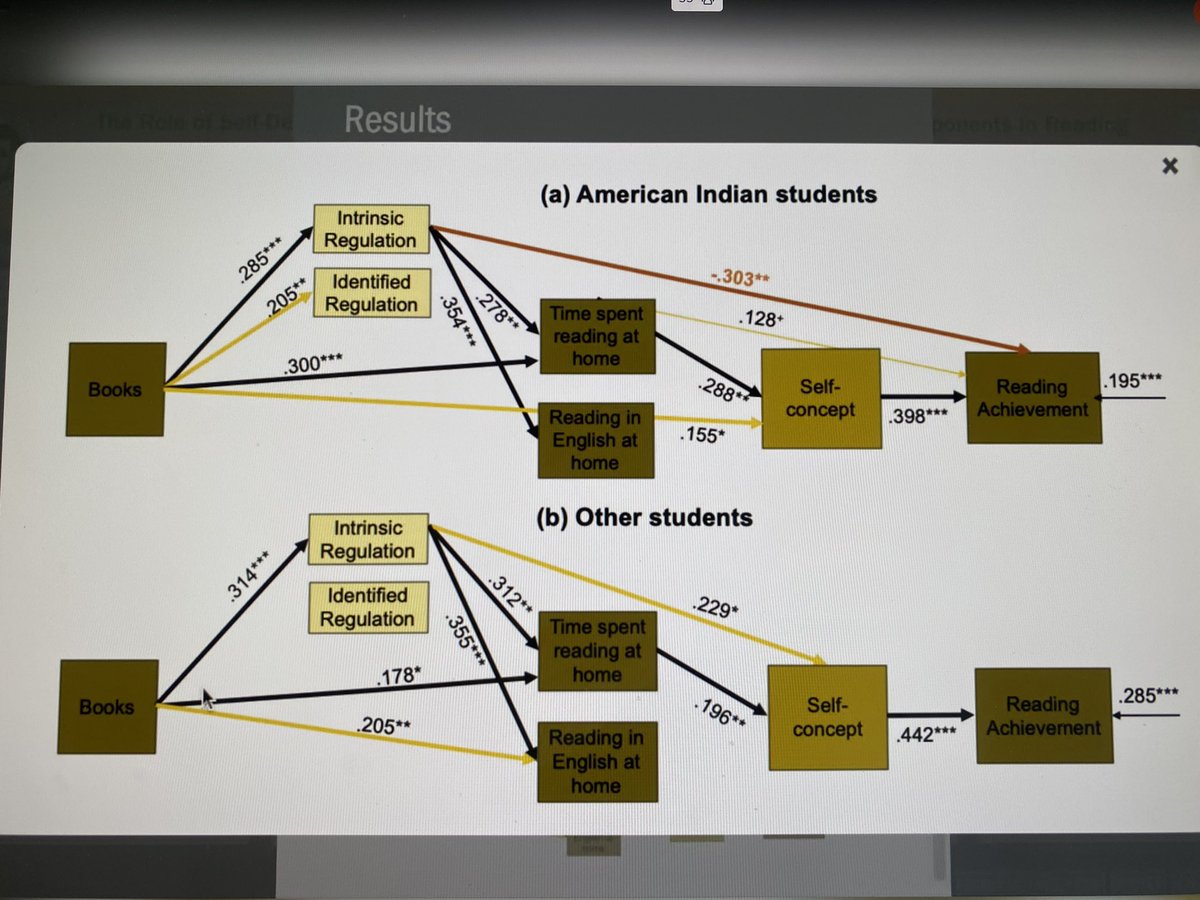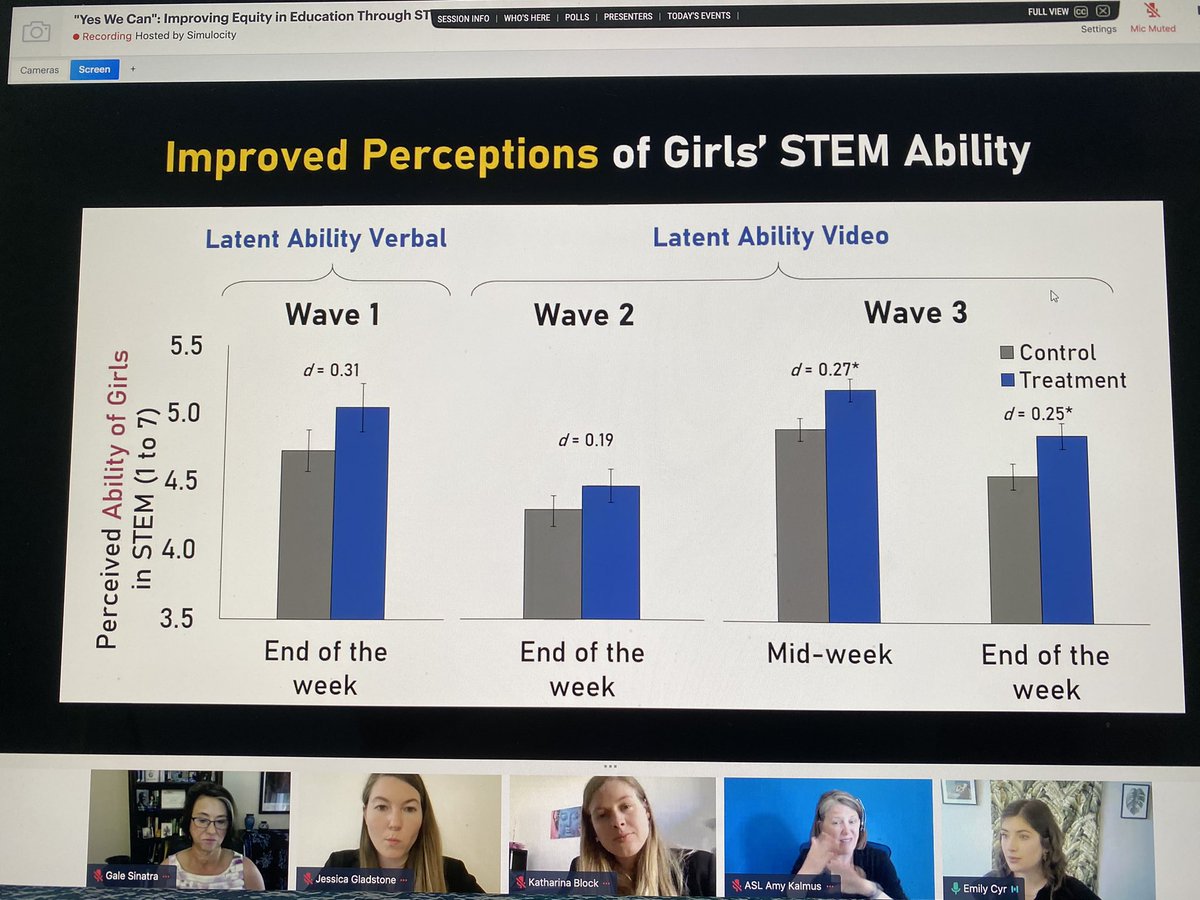#AERA21 Motivation in underrepresented populations: Nicole Yates: external regulation is positively related to intrinsic motivation for Black students and negatively for White students. 

Claudia Sutter: American Indian elementary students report higher intrinsic regulation than other groups, but this negatively predicted their reading achievement. #AERA21 



Love this talk from Christopher Seals and @HValdiviejas: teacher growth mindset intervention increased student interest and (for non-Asian minoritized students) decreased perceptions of cost/effort. 



@c_barbieri_d and @danacotto: underrepresented minority students’ lower sense of belonging in math partially explained lower performance in math. #AERA21 

Great points by @emeryaa. Representation of students with disabilities is both a social justice issue and an issue of theoretical precision.
Calls to action for ed psych researchers from @emeryaa and Rebecca Louick: 

Tagging @ralouick here!
• • •
Missing some Tweet in this thread? You can try to
force a refresh











